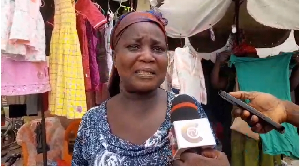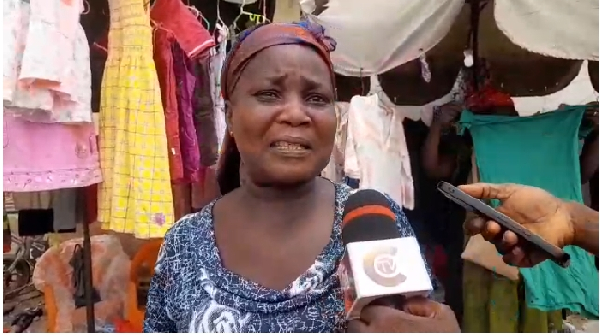 The women raised concerns about the appalling condition of the market’s only toilet facility
The women raised concerns about the appalling condition of the market’s only toilet facility
Market women in Amanase, a farming community in the Ayensuano District of the Eastern Region, have voiced their frustration over the deplorable state of their local market, which they say is severely affecting their economic activities.
During an interaction with Accra FM/CTV news reporter Apelete Kofi-Michel, the traders complained about the lack of adequate market infrastructure to accommodate the growing number of vendors.
Many are forced to conduct business under the scorching sun, while others resort to renting or purchasing tents to shield themselves from the harsh weather. With the rainy season approaching, the women fear their situation could deteriorate further.
They also raised concerns about the appalling condition of the market’s only toilet facility, which they described as unsanitary and a health hazard. According to the women, the stench from the lavatory is so unbearable that it sometimes makes it difficult to breathe.
They are therefore appealing for an immediate renovation of the facility to ensure a more hygienic environment.
Another pressing issue, the traders noted, is the lack of electricity in the market. The absence of lighting has turned the area into a hotspot for criminal activity at night, leading to the loss of valuable goods and capital.
They stressed that electrifying the market is crucial to improving security and protecting their livelihoods.
These concerns came to light during a routine visit by the District Chief Executive (DCE) for Ayensuano, Hon. Joshua Yaw Frederick Lartey, to lorry stations, markets, and other public spaces to assess the challenges faced by residents.
Responding to the concerns, the DCE acknowledged the market women’s plight and assured them that the Assembly has taken note of their complaints. He expressed the hope that urgent measures would be implemented to address their needs.
Lartey also used the opportunity to urge Ghanaians to honour their tax obligations, stressing that the government relies on tax revenue to fund development projects, including those aimed at improving market infrastructure and community services.


